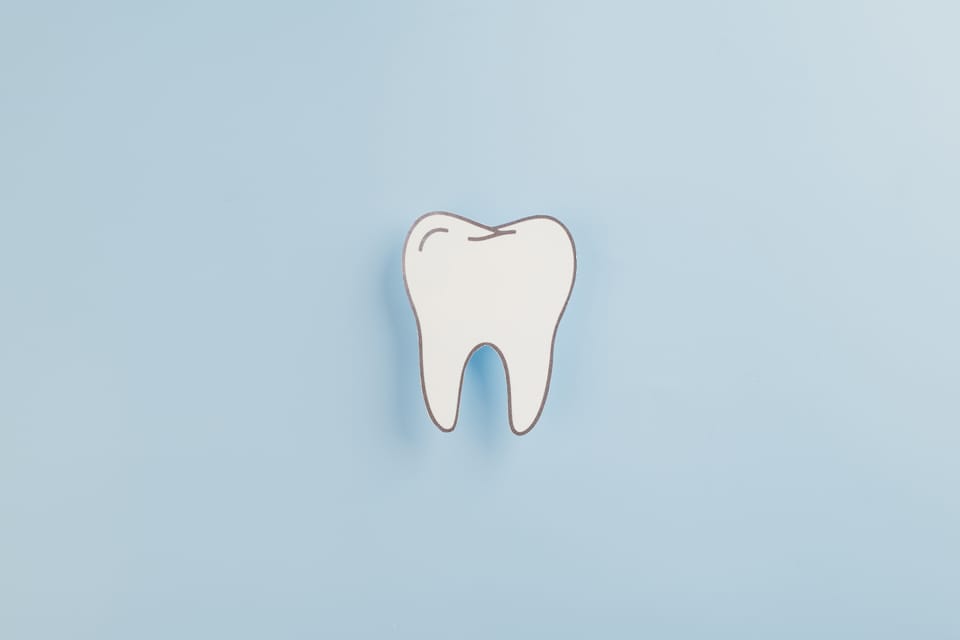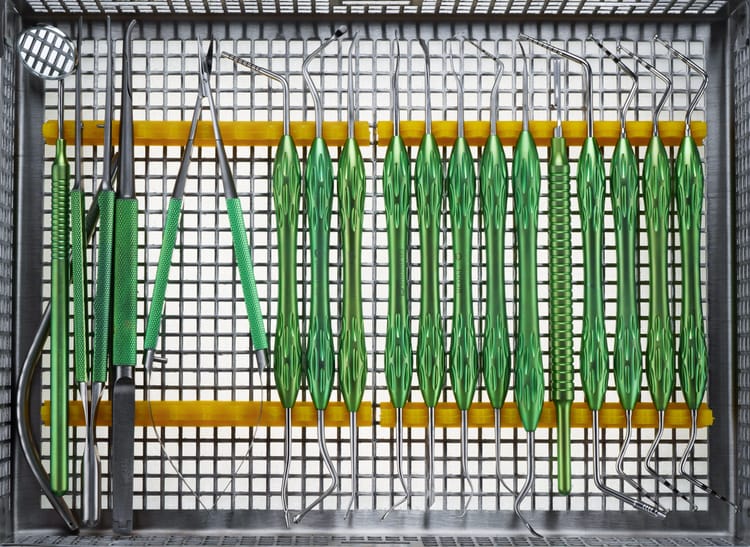The teeth everyone's talking about

Lab-grown teeth represent a big step forward in regenerative dentistry research. Scientists were able to grow a human tooth, and the eventual goal would be to grow teeth that could naturally integrate into patients' jaws. Plus, we talk to a chief dental officer about the best way to approach challenging conversations with patients.

'Empathy as a foundation is critical'
Earlier this year, a survey found that more than half of patients lie to their dentists. Why the dishonesty? Feelings of guilt and anxiety are common among people heading to the dentist. Once in the chair, people are worried not only about their dentist's judgement but also the potential price of the care they need.
Dentists often need to have tricky conversations with their patients, but effective communication can help people overcome their concerns and get the care that they need.
Collin Bowerman, DMD, the chief dental officer at Risas Dental and Braces, spoke to Dental Bite about ways dentists and their staff can improve their patient communication skills.
A trip to the dentist can involve some sensitive issues for many people. What are some of the toughest conversations that dentists might have to navigate with their patients?
Some tough conversations can include things like delivering bad news. It can be heartbreaking for a patient to hear “You have cavities,” or “Unfortunately, we need to extract the tooth." Part of being a good provider is not only being open and honest with the patient about treatment options, but also being there for the patient when delivering the bad news. Listening to them, giving them an opportunity to let the bad news become a reality and letting them know the entire office is there to help them can make a big difference.
Discussing expensive treatment plans is also a challenge. Getting to a healthy and beautiful smile can sometimes be very costly. Sometimes patients can't afford the ideal treatment. Showing compassion and flexibility can mean the world to the patient.
And there's always managing expectations. Unfortunately, it does happen where expectations are not met with the patient and this can be very tough for everyone involved. There are limitations sometimes that can impact the outcome (finances, clinical limitations, etc.) and even the best dentist can only do so much in certain scenarios.
How can dentists develop their communication skills to address some of these issues?
Using empathy as a foundation is critical to successful communication with patients. When a provider asks open-ended questions and uses reflective listening skills, the patient is able to feel more comfortable and it becomes much easier to solve the issues at hand. Attending trainings, watching YouTube, reading communication books such as "To Sell is Human" all are great options for improving communication skills.
Practice staff members can play an important role in patient communication. How can dentists train their staff to handle tricky conversations around dental hygiene habits, treatment planning and cost?
One of my personal favorite trainings involves role playing communication scenarios with the team. These exercises often require teammates to step outside of their comfort zones, while providing a safe environment to practice and receive feedback.
What is the value in focusing on patient communication and relationship-building? Why should practices be thinking about ways to improve?
There is a saying that goes something like “You can be the best dentist in the world, but if you are a jerk chairside, you won’t succeed." Doing quality dentistry is extremely important and having exceptional chairside connections with patients is critical. The more we can connect with our patients, the more it helps everyone accomplish the unified goal of delivering healthy and happy smiles!

Medical-dental integration. Medical-dental integration (MDI) is a care approach that seeks to link oral health and overall health. Dentists can adopt this approach by talking to their patients about their medical history and building out their network for clinician referrals.
The right suture material? On an episode of the "Dental Digest Podcast," Melissa Seibert, DMD, and Diego Velásquez, DDS, talk about the importance of selecting the right suture material and what goes into that decision.
The push to preserve student loan forgiveness. The Public Service Loan Forgiveness program offers student debt relief and forgiveness. The American Dental Association (ADA) joins other organizations calling on the House and Senate education committees to preserve the program.
Practice owners and immigration issues. Immigration issues are front and center under the current administration. What do dental practice owners need to know about workplace policies, immigration enforcement and legal rights?
'White Lotus' and a scene-stealing smile. The popular HBO series "White Lotus" sparked a ton of speculation and discourse, but one of the most talked about points wasn't the plot. Actress Aimee Lou Wood's natural teeth became a big point of debate.

Lab-grown teeth become reality
In a breakthrough for regenerative dentistry, scientists at King's College London successfully grew a human tooth in the lab. They achieved this milestone by enabling cells to communication with one another, passing along the message to become a tooth cell.
Why it matters: It could be years before this lab success is translated into patient care, but the possibility of integrating lab-grown teeth into clinical practice would mean a major change for the field. (BBC)
Big change coming to CDC's fluoride recommendations
Robert F. Kennedy Jr. announced plans to order the Centers for Disease Control and Prevention (CDC) to change its fluoridation recommendations. While the CDC cannot prevent communities across the country from adding fluoride to drinking water, its recommendation to stop doing so could carry a lot of weight.
Why it matters: Many states and cities are rethinking fluoride in the public water supply, and a push to remove it from the federal level could continue to fuel this trend. (AP News)
Dental implants and titanium microparticles
Titanium is a biocompatible material used in dental implants. A new study published in Communications Medicine found that titanium microparticles are found in tissue surrounding implants. Researchers also found that gene expression changed in tissue samples with microparticles.
Why it matters: More research will be necessary to understand what happens to titanium microparticles in the body and how they impact inflammation and wound healing. (Medical Xpress)

- Connection between statins and periodontal health
- Dentsply Sirona, Formlabs collaborate on digital dentures workflow
- Rutgers professor aims to close gaps in dental patient care
- Tips for dental practice tax write-offs
- Is your dental staff CPR re-certified?
Don't be a stranger.
💠 Reply to this email to connect with our team.
💠 Forward Dental Bite to your colleagues.



